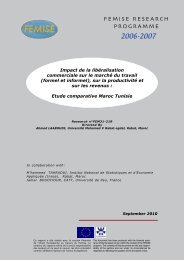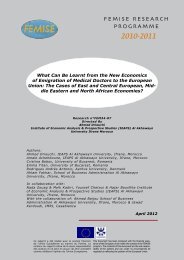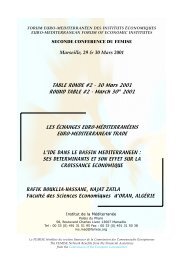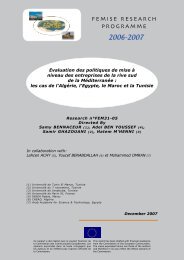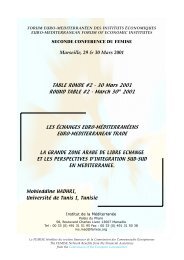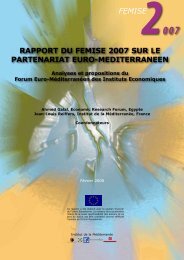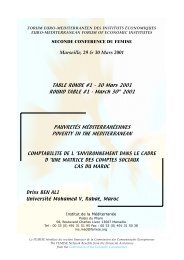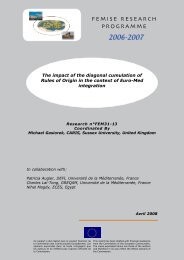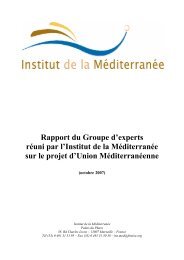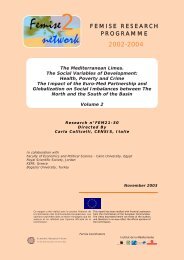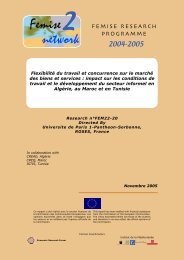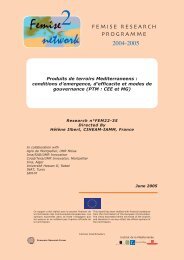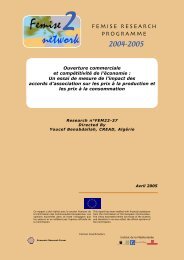PDF, GB, 139 p., 796 Ko - Femise
PDF, GB, 139 p., 796 Ko - Femise
PDF, GB, 139 p., 796 Ko - Femise
You also want an ePaper? Increase the reach of your titles
YUMPU automatically turns print PDFs into web optimized ePapers that Google loves.
society. In addition, they show that as countries fight corruption, public spending on primary<br />
education becomes more effective in expanding primary education enrolment.<br />
In many countries and especially in Post-communist and Mediterranean countries the role of<br />
the state is often carried out through the use of numerous rules or regulations. In these<br />
countries, licenses, permits, and authorizations of various sorts are required to engage in many<br />
economic activities (Kaufman 1997). The existence of such regulations and authorizations<br />
gives a monopoly power to the officials who must authorize or decide on such activities<br />
(Rose-Ackerman 1978). These officials may refuse the authorizations or may simply delay a<br />
decision for months or even years. Thus, they can use their public power to extract bribes<br />
from those who need the authorizations or permits most. Svensson (2003) argues that firms<br />
have to pay bribes when dealing with public officials whose actions directly affect the firms’<br />
business and such dealings cannot be easily avoided. Therefore it is not a fixed sum for given<br />
services, but a function of sunk costs and future profits. Firms with higher overdue payments<br />
to utilities also appear to pay higher bribes (Clarke and Xu, 2002). Fisman and Svensson<br />
(2000) show that the raised risk of investing causes companies engaged in corrupt deals to<br />
grow slower. For the gathered data, one percent of an increase in given bribe slows the growth<br />
of the company by three percent, which was an effect three times greater than the effect of a<br />
similar raise in taxation. What is more important, the researchers controlling for more and<br />
more factors observed a diminishing role of taxation and an increasing impact of bribes.<br />
Consequently, officially organized firms in Ukraine and Russia are much more probable to<br />
admit to hiding sales and salaries than firms in Central Europe (Johnson, Kaufmann,<br />
McMillan, and Woodruff 2000). Illegal enterprises are more widespread in Russia and<br />
Ukraine, and such firms hide all of their output from the official scrutiny. What's more, firms<br />
in Ukraine and Russia inform about spending more time on administrative and regulatory<br />
matters than anywhere else (18% and 25% respectively compared to about 10% for the other<br />
countries). In Ukraine and Russia generally all firms report making illicit payments, and<br />
consequently they hide a high proportion of their revenues. In Central Europe, there exist a<br />
group of firms, which operates both corruptly and unofficially, but the practice is not so<br />
widespread. McArthur and Teal (2004) use survey data to investigate the importance of<br />
corruption in determining firm performance in Africa. They find that corruption is linked to<br />
significant adverse effects on firm performance in two ways. At the firm level, companies that<br />
110



